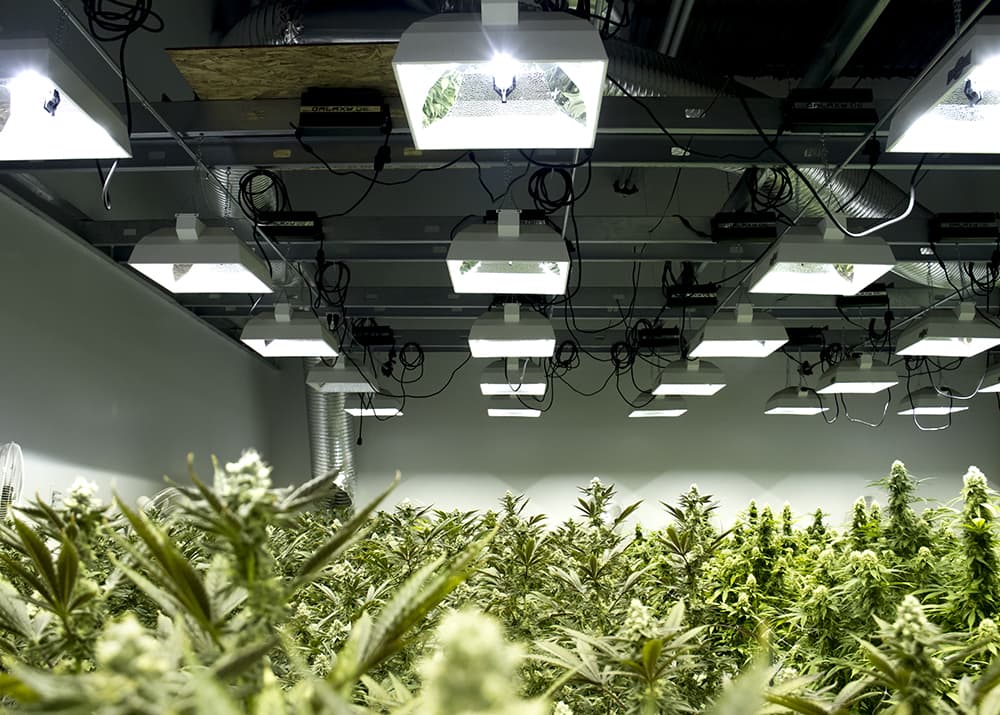Today, Bob Troyer became one of the most closely watched people in Colorado.
Troyer is the U.S. attorney for the state, leading the federal prosecutors who are central to enforcing federal laws -- like the ones about marijuana. With this morning's ground-shaking change in federal marijuana policy, he is now in a position to decide the fate of the state's legal marijuana industry.
To get a sense of what he might do, we interviewed his old boss: John Walsh, the previous U.S. attorney for Colorado. Both he and Colorado Attorney General Cynthia Coffman have played down the possibility of a full-scale assault on legal marijuana in Colorado, but Walsh warned of confusion and even chaos in cannabis markets.
"This leaves it to the individual U.S. attorneys to develop their own policy, which frankly is very difficult, having been in that position and trying to reconcile a truly unique situation where there is a conflict between state and federal law," Walsh said.
"In theory, it leaves the field open, and that’s part of the problem. You could easily see very different enforcement approaches taken by districts even next to each other. ... The potential for confusion is extremely high, and the potential for actual chaos exists."
A bit of context:
As we reported earlier, U.S. Attorney General Jeff Sessions has erased the Cole memo, which established the federal government's "hands off" approach. Sessions said that the change would be "a return of trust and local control to federal prosecutors" who would fight to "reduce violent crime, stem the tide of the drug crisis, and dismantle criminal gangs."
In theory, an anti-marijuana U.S. attorney could set off high-profile raids and attempt to prosecute operators of both recreational and medical marijuana businesses. They have always had the power to do that, but the Obama guidance set a strong expectation that they would not. (Read our earlier coverage on Colorado leaders' strong reactions to the change.)
There have not been any notable federal actions against legal marijuana since the recreational law passed in 2014, although some operators have been caught up in investigations into black-market smuggling operations.
What will Troyer do?
Walsh hired Troyer into the Colorado office back in 2010. Troyer took on the lead job when Walsh left government work in 2016, and was appointed to it on a longer-term basis by Sessions this year.
Asked what he expected of his successor, Walsh said that Troyer is very experienced in dealing with the state's marijuana laws.
"He’s got seven-plus years of experience of wrestling with the issue," Walsh said. "I think everyone in Colorado, and certainly we understood in the U.S. Attorney’s office, that the people of Colorado made a clear decision in favor of recreational legalization."
He added that federal prosecutors have to wrestle with the question of whether juries will actually convict legal marijuana operators. After all, he said, a majority of voters did approve legal marijuana -- and prosecutors have "limited resources."
Nationwide, "while there may be more aggressive prosecution on the edges, it’s very hard to imagine a wholesale assault and prosecution of the entire industry," he said.
"The thing about Bob Troyer is that he is a consummate career prosecutor, and he will look at every case on its own merit and he will really exercise decades of experience as a prosecutor in deciding what to bring."
Another former employee of the office, Kenneth Harmon, also said Troyer's office would make careful decisions. "I think Bob Troyer has a bunch of seasoned prosecutors that have worked there for years and exercised excellent judgement and discretion," said Harmon, who left in December after 19 years prosecuting white-collar crime in Colorado.
For its part, Troyer's office has been fairly tight-lipped about its plans in this new world. In a news release, he said that his office already follows the principles laid out by Sessions today. The focus has and will be on "identifying and prosecuting those who create the greatest safety threats to our communities around the state," he said.
Meanwhile, the state attorney general said at a press conference that she "would encourage people not to freak out." Coffman said that based on her conversations with Troyer, she doesn't expect a crackdown in Colorado.
What's next?
Troyer's job just got harder, Walsh said. Federal prosecutors had clamored in the early 2010s for guidance on dealing with the conflicting laws on marijuana. The Cole memo provided that, he said. Now, it's gone.
"I wasn’t surprised that there was a move away from the Cole memo, just because there’s a very clear and established pattern with this Department of Justice and Attorney General Sessions of rescinding everything from the Obama administration. To that degree, I was not surprised," said Walsh.
"I will say that I was surprised that the memo simply rescinds the Cole memo but does not provide any meaningful additional guidance. To me, what that suggests is, frankly ... a refusal to take responsibility for how the law’s going to actually be enforced in the wildly different states in the union."
Walsh was U.S. attorney for Colorado from August 2010 to July 2016. He also served as chair of the influential Attorney General's Advisory Council of U.S. Attorneys from 2015 to 2016. He is now working as a partner with WilmerHale.













